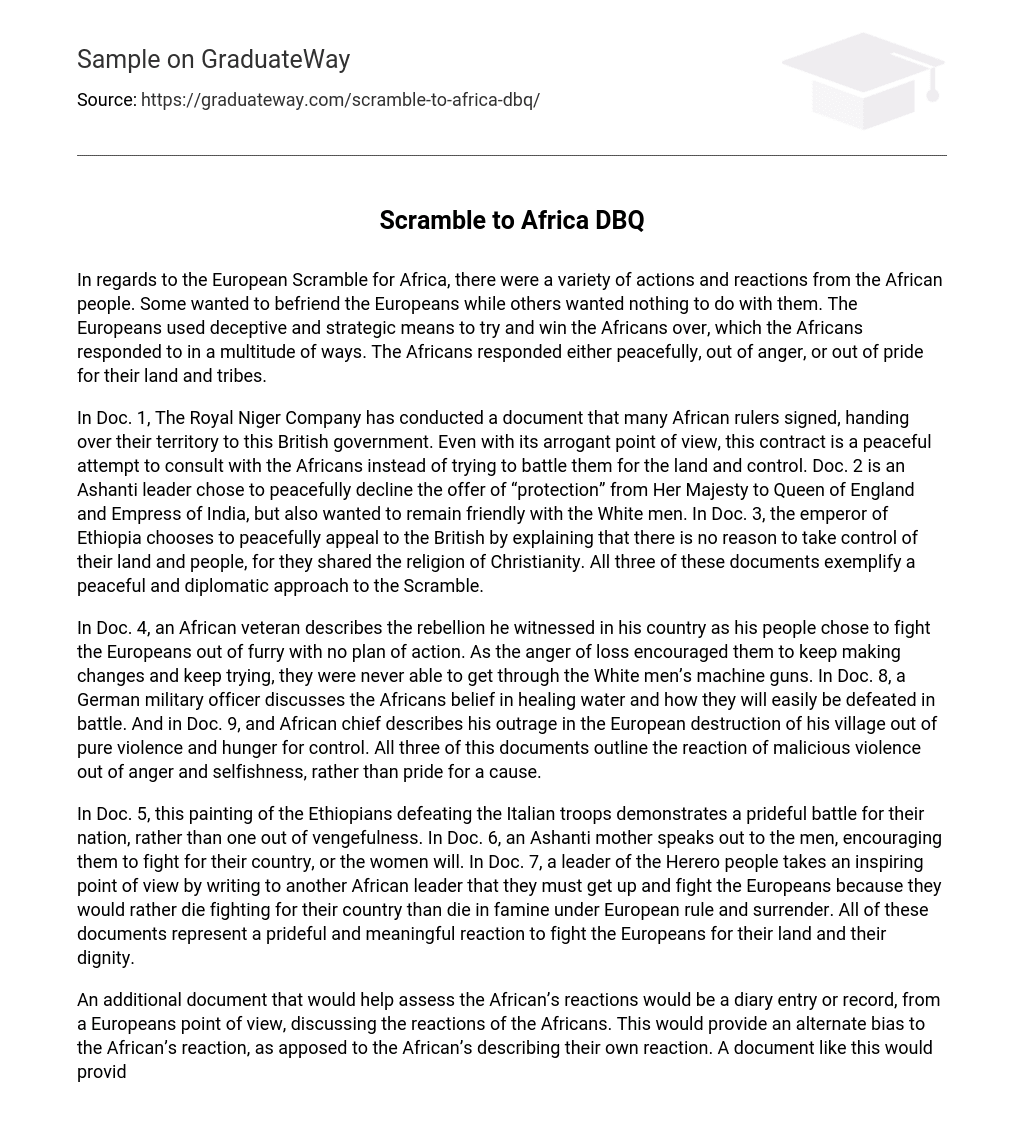In regards to the European Scramble for Africa, there were a variety of actions and reactions from the African people. Some wanted to befriend the Europeans while others wanted nothing to do with them. The Europeans used deceptive and strategic means to try and win the Africans over, which the Africans responded to in a multitude of ways. The Africans responded either peacefully, out of anger, or out of pride for their land and tribes.
In Doc. 1, The Royal Niger Company has conducted a document that many African rulers signed, handing over their territory to this British government. Even with its arrogant point of view, this contract is a peaceful attempt to consult with the Africans instead of trying to battle them for the land and control. Doc. 2 is an Ashanti leader chose to peacefully decline the offer of “protection” from Her Majesty to Queen of England and Empress of India, but also wanted to remain friendly with the White men. In Doc. 3, the emperor of Ethiopia chooses to peacefully appeal to the British by explaining that there is no reason to take control of their land and people, for they shared the religion of Christianity. All three of these documents exemplify a peaceful and diplomatic approach to the Scramble.
In Doc. 4, an African veteran describes the rebellion he witnessed in his country as his people chose to fight the Europeans out of furry with no plan of action. As the anger of loss encouraged them to keep making changes and keep trying, they were never able to get through the White men’s machine guns. In Doc. 8, a German military officer discusses the Africans belief in healing water and how they will easily be defeated in battle. And in Doc. 9, and African chief describes his outrage in the European destruction of his village out of pure violence and hunger for control. All three of this documents outline the reaction of malicious violence out of anger and selfishness, rather than pride for a cause.
In Doc. 5, this painting of the Ethiopians defeating the Italian troops demonstrates a prideful battle for their nation, rather than one out of vengefulness. In Doc. 6, an Ashanti mother speaks out to the men, encouraging them to fight for their country, or the women will. In Doc. 7, a leader of the Herero people takes an inspiring point of view by writing to another African leader that they must get up and fight the Europeans because they would rather die fighting for their country than die in famine under European rule and surrender. All of these documents represent a prideful and meaningful reaction to fight the Europeans for their land and their dignity.
An additional document that would help assess the African’s reactions would be a diary entry or record, from a Europeans point of view, discussing the reactions of the Africans. This would provide an alternate bias to the African’s reaction, as apposed to the African’s describing their own reaction. A document like this would provide a more complete understanding.





